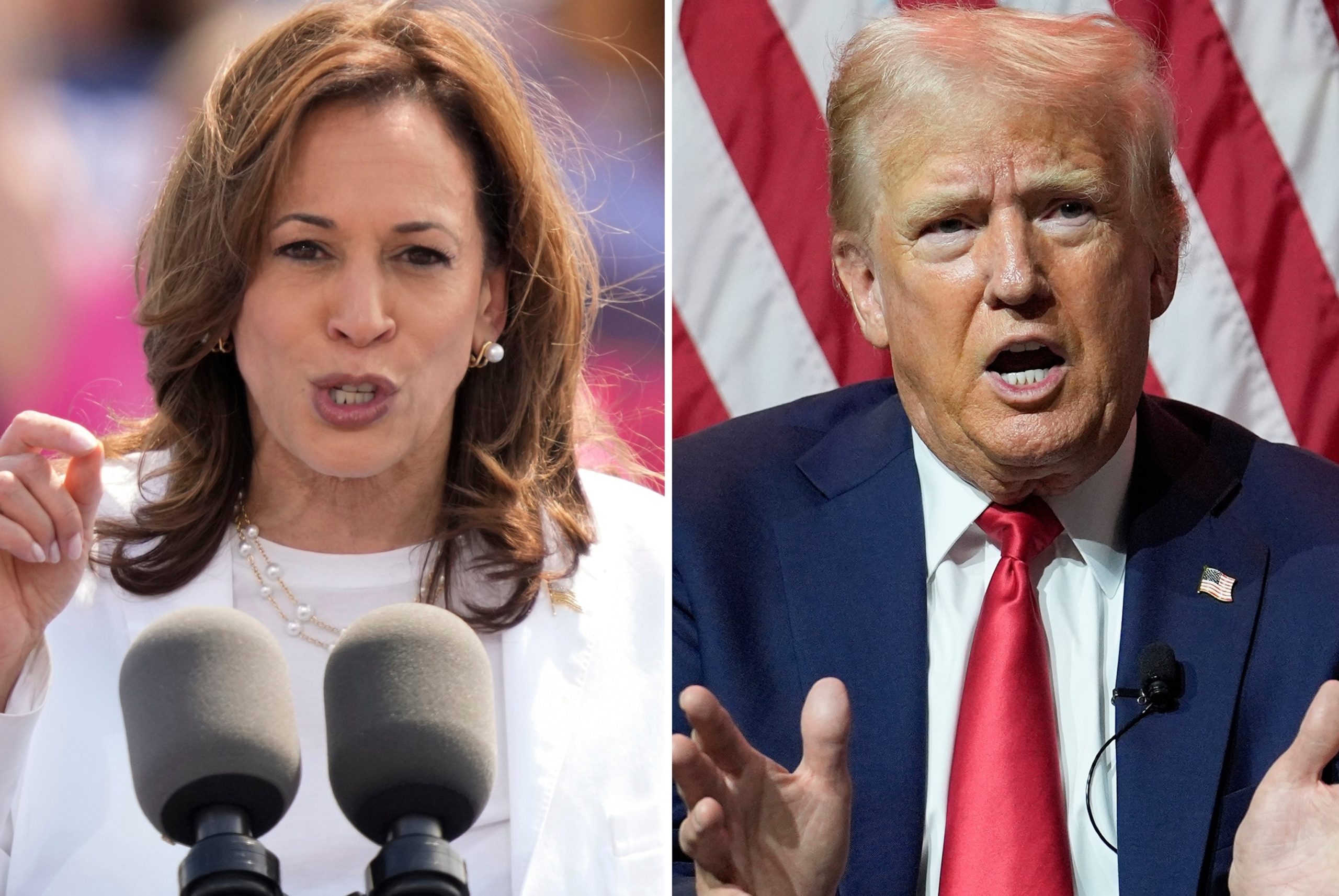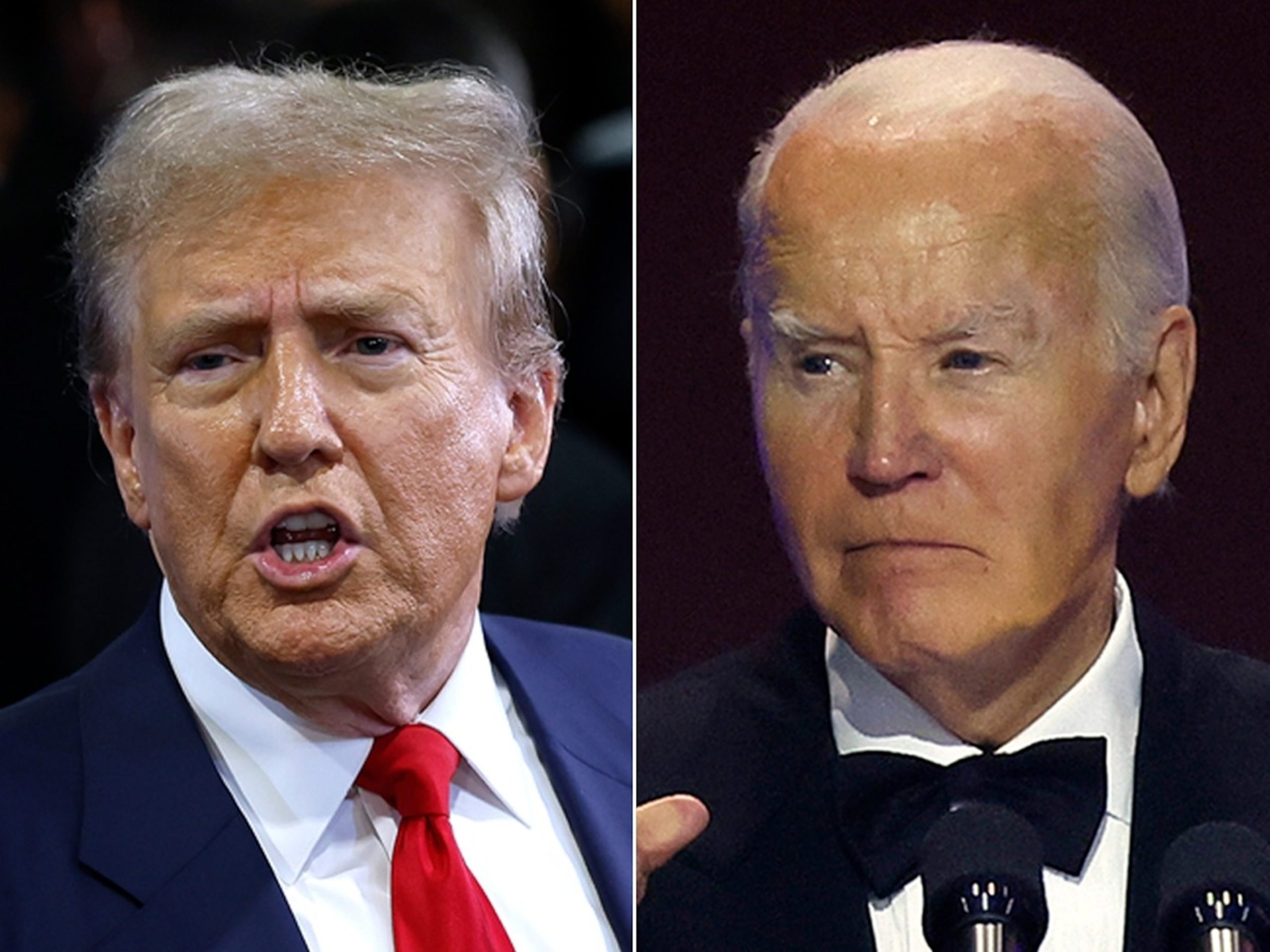Persuading people that she’s got the chops to deal with the economy as well as the empathy to understand their problems is a key task for Vice President Kamala Harris at the Democratic National Convention and beyond.
She’s got competition: An analysis of ABC News/Washington Post/Ipsos polling data shows that the same to-do items top the list for former President Donald Trump.
Preferring Harris over Trump to handle the economy narrowly outweighs thinking she “understands the problems of people like you” in predicting vote preference for Harris. Harris currently trails Trump on the economy, while leading him in perceived empathy.
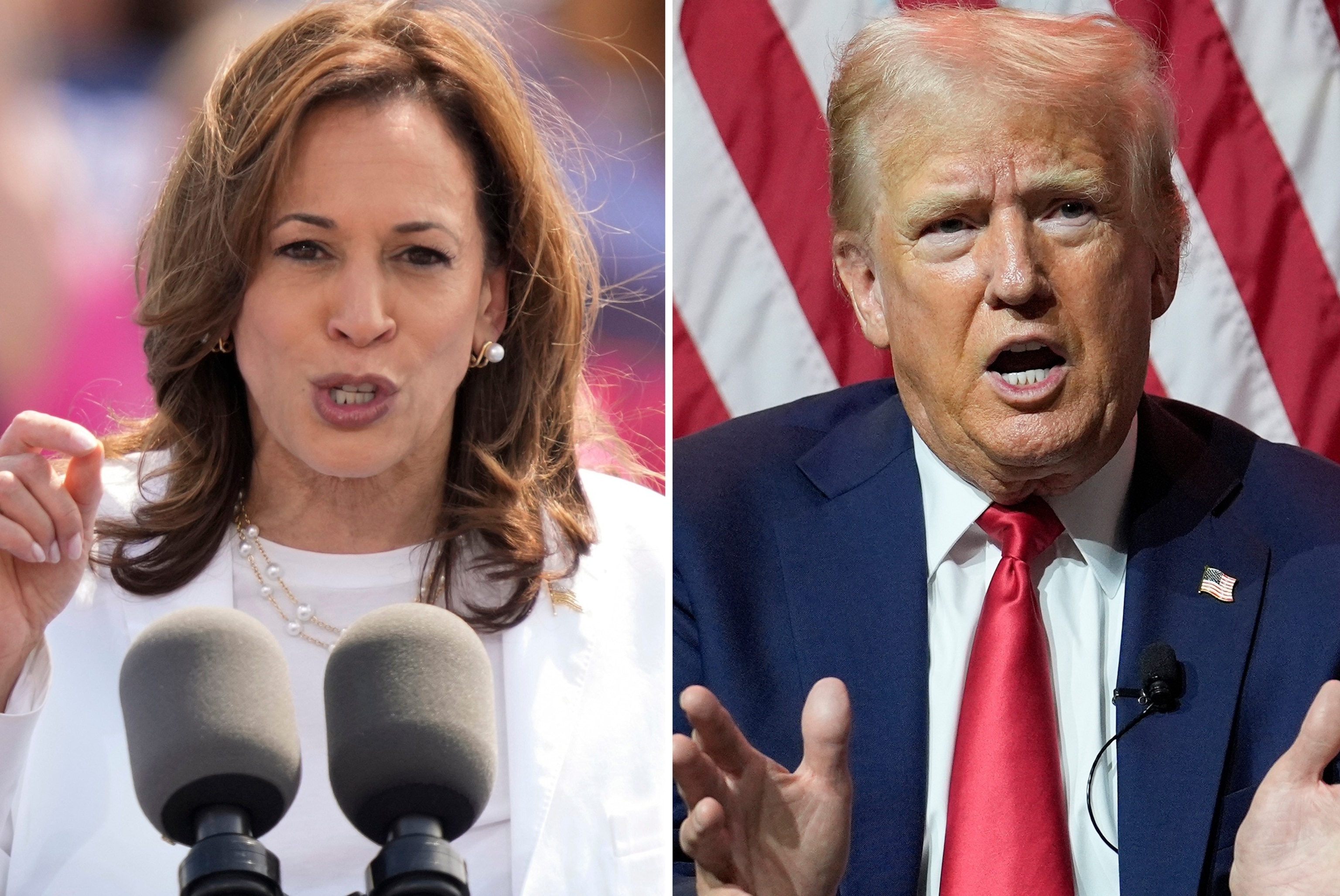
This combination of photos shows Vice President Kamala Harris, left, on Aug. 7, 2024, and Republican presidential candidate former President Donald Trump on July 31, 2024.
Charles Rex Arbogast/AP, FILE
Both are strong elements of candidate choice, displacing traditional items — political party identification, ideology and race/ethnicity — as top predictors of vote preference in a statistical analysis called regression produced by for ABC by Langer Research Associates.
These predictors largely are consistent in predicting support for Trump. Thinking he’s the candidate better suited to handle the economy again is the top predictor, followed closely by thinking he understands your problems.
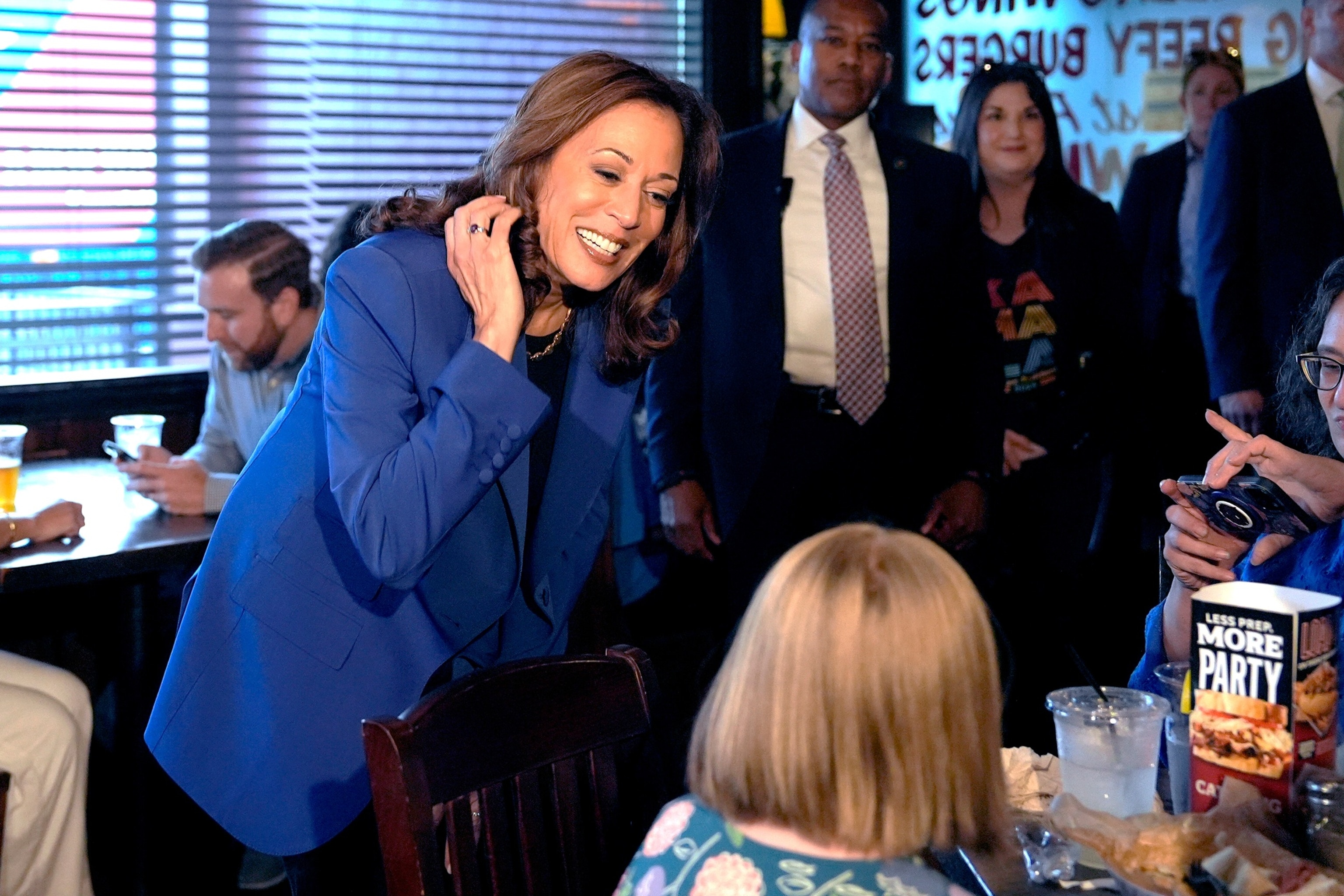
Democratic presidential nominee Vice President Kamala Harris, left, greets customers at Primanti Bros. restaurant during a campaign stop, on Aug. 18, 2024, in Pittsburgh, Pa.
Julia Nikhinson/AP
Regression analysis holds variables constant to see which emerge as independent predictors of an outcome. In predicting intention to vote either for Harris over Trump, or Trump versus Harris, models using only demographic variables explain 55% of the variance. Adding perceived empathy and trust to handle the economy boosts this to 70%, a robust model.
After the economy and empathy, other predictors of preferring Harris over Trump include being a Democrat, having more education and being liberal. In predicting the opposite — a vote for Trump — further predictors include being a Republican, living in a rural area, having less education and being conservative.
The analysis marks the central importance of establishing both empathy and economic stewardship in attracting support. Current standings show why the race is close: Trump leads Harris by 9 points, 46-37%, in trust to handle the economy, while Harris leads by 7 points, 40-33%, on empathy.
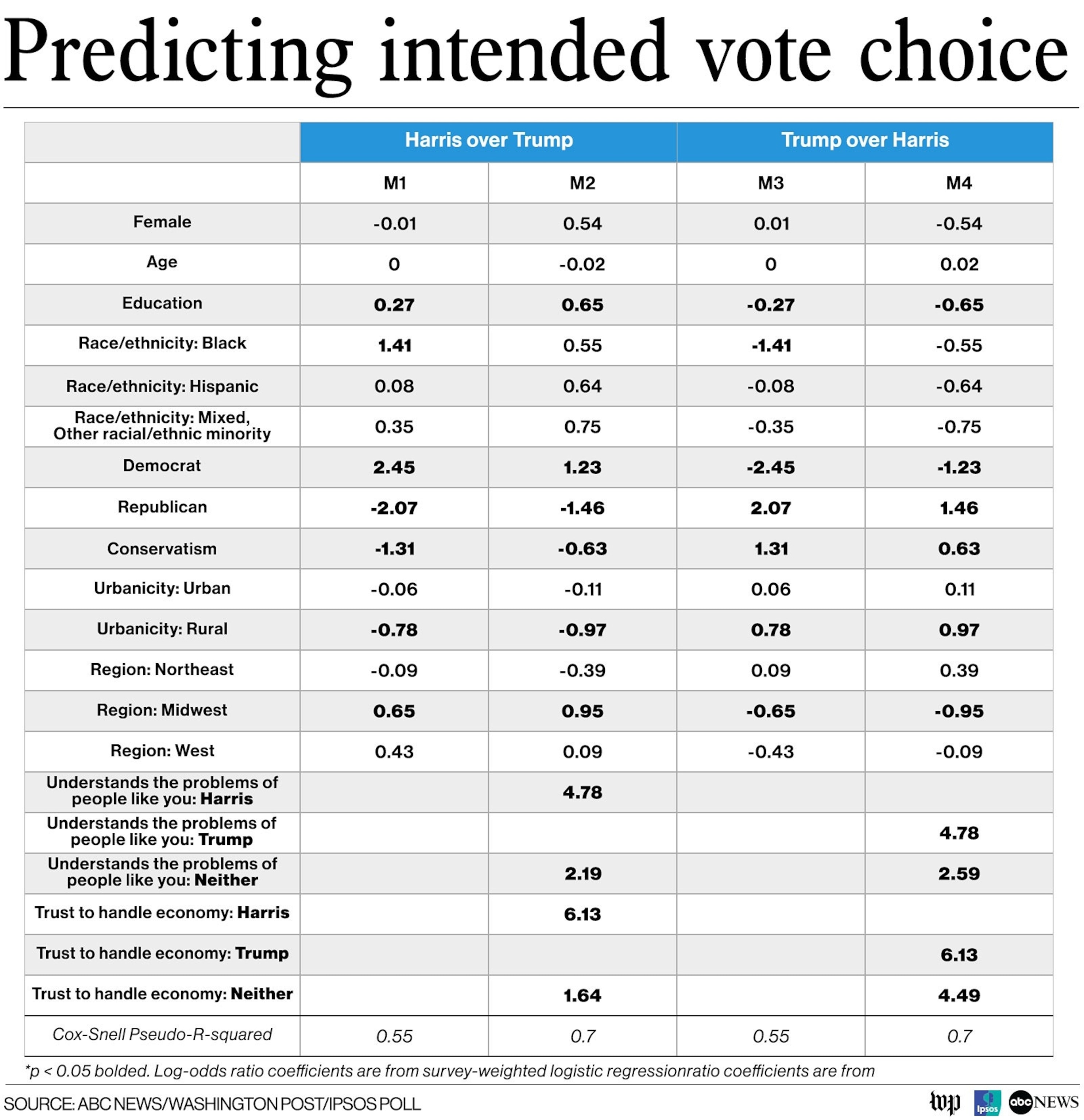
ABC News/Washington Post/IPSOS Poll
Notably, 26% currently don’t prefer either candidate on empathy and 16% don’t trust either on the economy. Those skeptical voters are ones to which Harris, and Trump alike, may best make their case.
Currently, they go in different directions: Among people who don’t trust either candidate to handle the economy, it’s 53-22%, Harris-Trump, with 18% intending to vote for someone else. Among those who think neither candidate understands the problems of people like them, by contrast, it’s 49-35%, Trump-Harris, and 14% for someone else.
Methodology:
Intention to vote for Harris over Trump in November was modeled using logistic regression, with binary responses from Q3_Q5net as the dependent variable, coded as 1) Harris/Walz and 0)Trump/Vance. That’s flipped for intention to vote for Trump over Harris, with 1)Trump/Vanceand 0) Harris/Walz. Independent variables are listed in the table.
Kamala Harris, the first female Vice President of the United States, has been praised for her empathetic approach to leadership. Throughout her political career, Harris has shown a deep understanding of the struggles faced by everyday Americans and has worked tirelessly to address issues such as criminal justice reform, healthcare, and immigration. However, as she takes on the role of Vice President, Harris faces challenges on economic issues that will test her ability to connect with voters and enact meaningful change.
One of the key challenges facing Harris is the economic fallout from the COVID-19 pandemic. The pandemic has caused widespread job losses, business closures, and financial hardship for millions of Americans. Harris will need to work with President Joe Biden to implement policies that stimulate economic growth, create jobs, and provide relief to those who have been hardest hit by the pandemic.
Another economic issue that Harris will need to address is income inequality. The gap between the wealthy and the working class has been widening for decades, and Harris has made it clear that she is committed to closing this gap. However, achieving this goal will require bold policy initiatives that may face opposition from powerful interest groups.
Harris also faces challenges in addressing racial and gender disparities in the economy. Women and people of color are disproportionately affected by poverty, unemployment, and lack of access to affordable healthcare. Harris has a strong track record of advocating for marginalized communities, but she will need to navigate complex political dynamics to make progress on these issues.
Despite these challenges, Harris’ empathy and commitment to social justice give her a unique advantage in tackling economic issues. Her personal experiences as a woman of color and a child of immigrants have shaped her perspective on the struggles faced by many Americans. Harris has a reputation for listening to diverse voices and incorporating their perspectives into her policy decisions.
In conclusion, Kamala Harris’ empathetic leadership style has the potential to make a positive impact on economic issues facing the country. However, she will need to navigate political obstacles and work collaboratively with Congress to achieve meaningful change. By staying true to her values and prioritizing the needs of marginalized communities, Harris can make a lasting impact on the economic well-being of all Americans.
